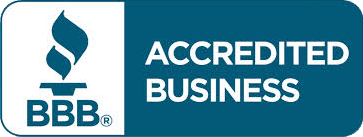Infrastructure Contract Surety Bonds for Large Projects

Contractors who design, build and maintain infrastructure systems around the country may be required by a state, local or federal government to obtain a payment and performance surety bond before contract work can begin.
Infrastructure projects can include building, repairing, and maintaining roads, bridges, tunnels, water supplies, sewers, electrical grids, and telecommunications systems.
Surety Bond and Obligee:
A surety bond has three entities involved: the obligee, the principal, and the surety. In the case of construction projects, the obligee would be the city, municipality, or county that requires a bond. The principal is the contractor that obtains the bond and is responsible for the project, and the surety is the surety company that writes the bond.
The surety bond guarantees that the work will be completed as stated in the contract. Although each contract and project is different, some items that could be a part of the contract are:
- Proof that the contractor is financially stable and has the funds to complete the project
- A guarantee that the contractor will properly complete the project as outlined in the contract
- Ensure workers and suppliers are paid
- Timeline and project deadline in which the project will be completed
- Have a specific budget for the project
If the contractor fails to fulfill his contractual obligations, then a claim(s) can be made on the bond.
Instead of a surety bond, other accepted securities can be a letter of credit, certified check, or cash.
What Will This Bond Cost?
The premium you pay for a payment and/or performance surety bond for infrastructure contract projects depends on factors such as the bond amount, plus the condition of your business and personal financial statements. Contact our Surety Bond Specialists for a free quote that fits your specific situation.
Did You Know?
The Miller Act of 1935 requires that contractors who enter contracts for over $100,000 for the construction, alteration or repair of a building or public work must have a payment and performance bond.
Related Links:
Infrastructure PledgePile Driver Contractor Surety Bonds
Civil Site Engineer Surety Bonds
Transportation Infrastructure Contractor Surety Bonds
More Surety Bond Questions?
Check out our FAQ page or What’s a Surety Bond? page. Should you need or choose to buy a surety bond, buy from us. SuretyGroup.com has been underwriting surety bonds throughout the U.S. for more than 35 years. When you work with us, you enjoy the unique benefit of dealing with a team of highly experienced surety agents with in-house underwriting authority. This allows you to receive competitive, low rates, quick approvals, and immediate bond delivery. In most cases, your bond will be delivered within 24 hours after you apply for it.
For a downloadable application









